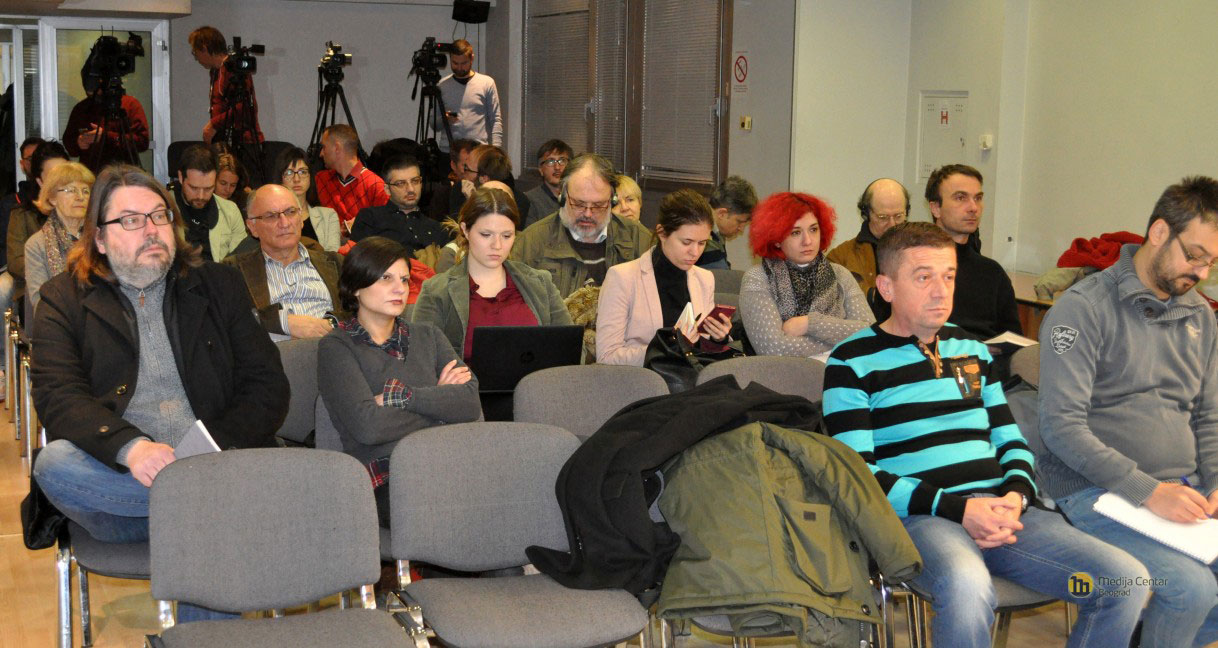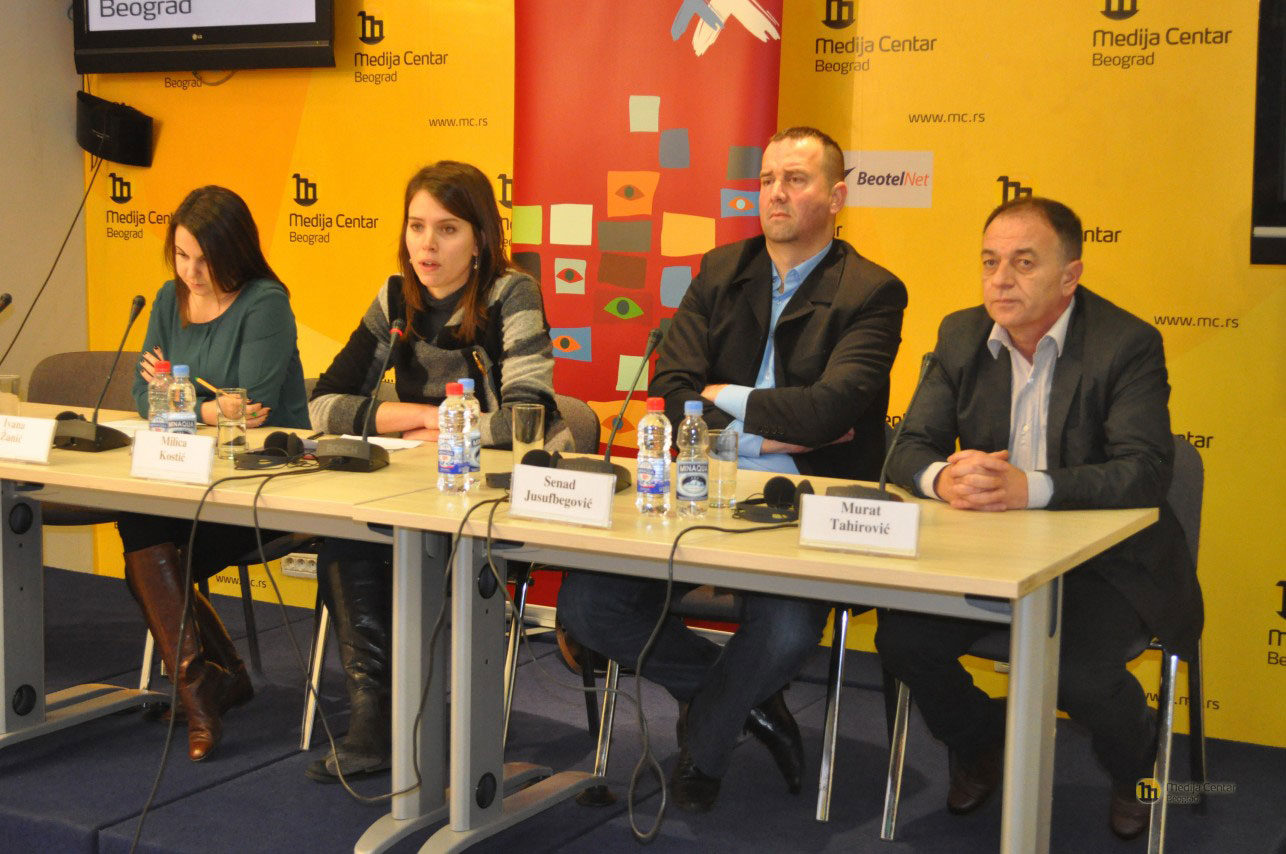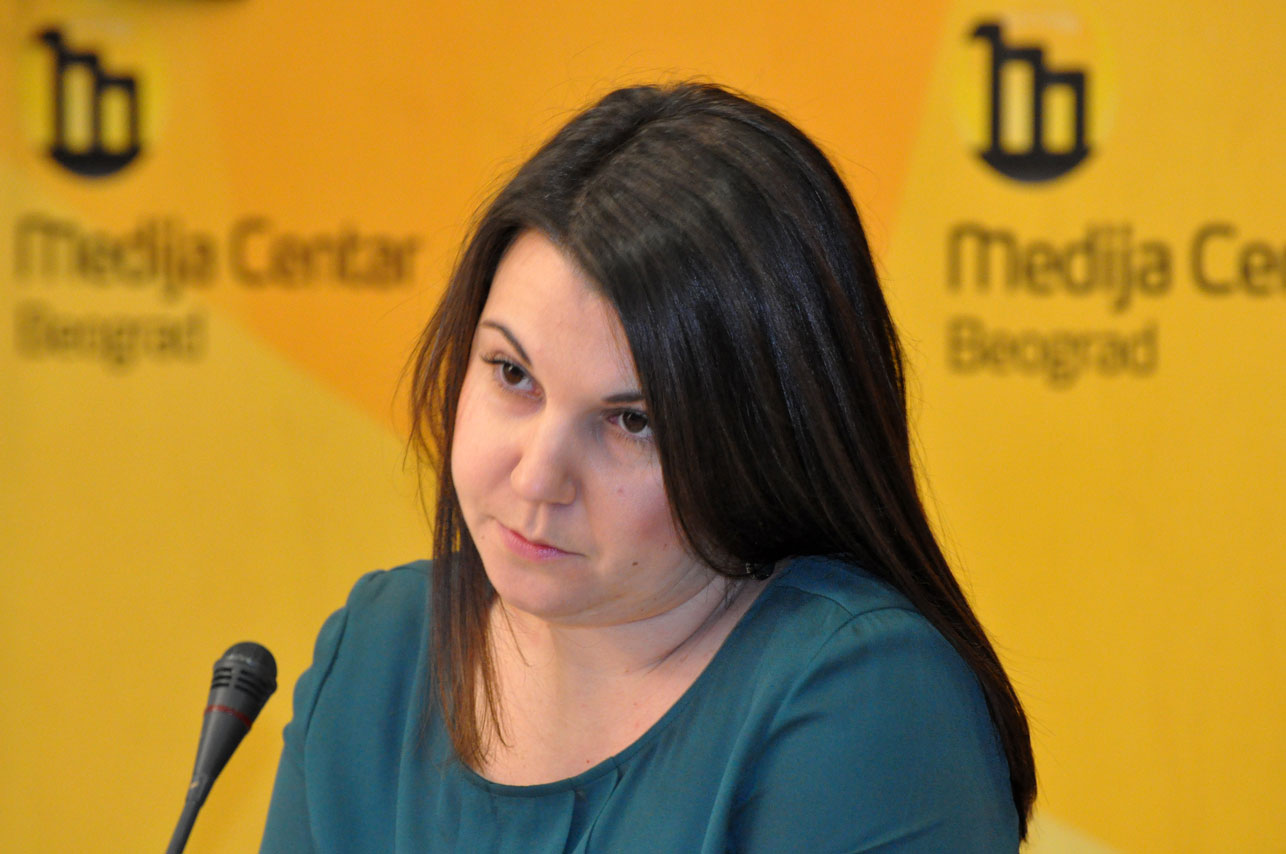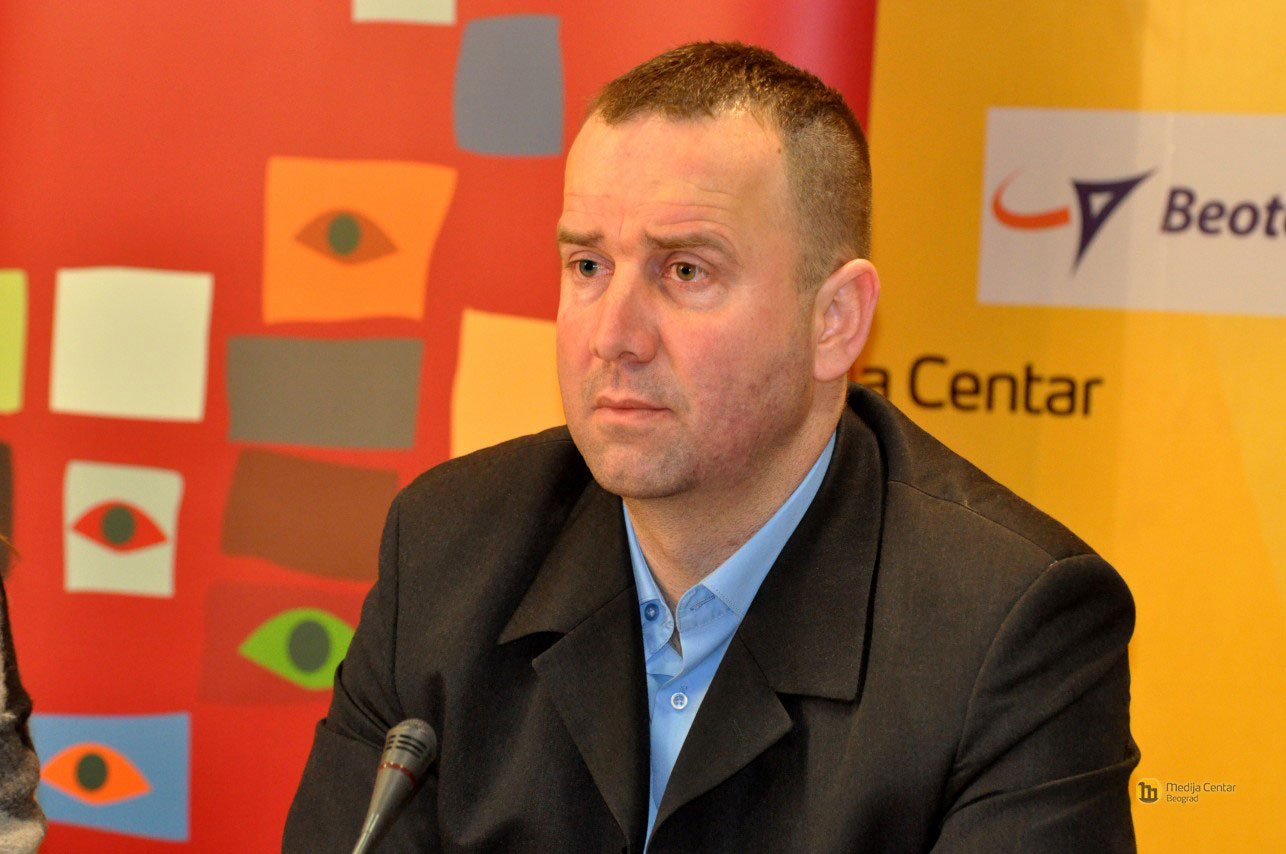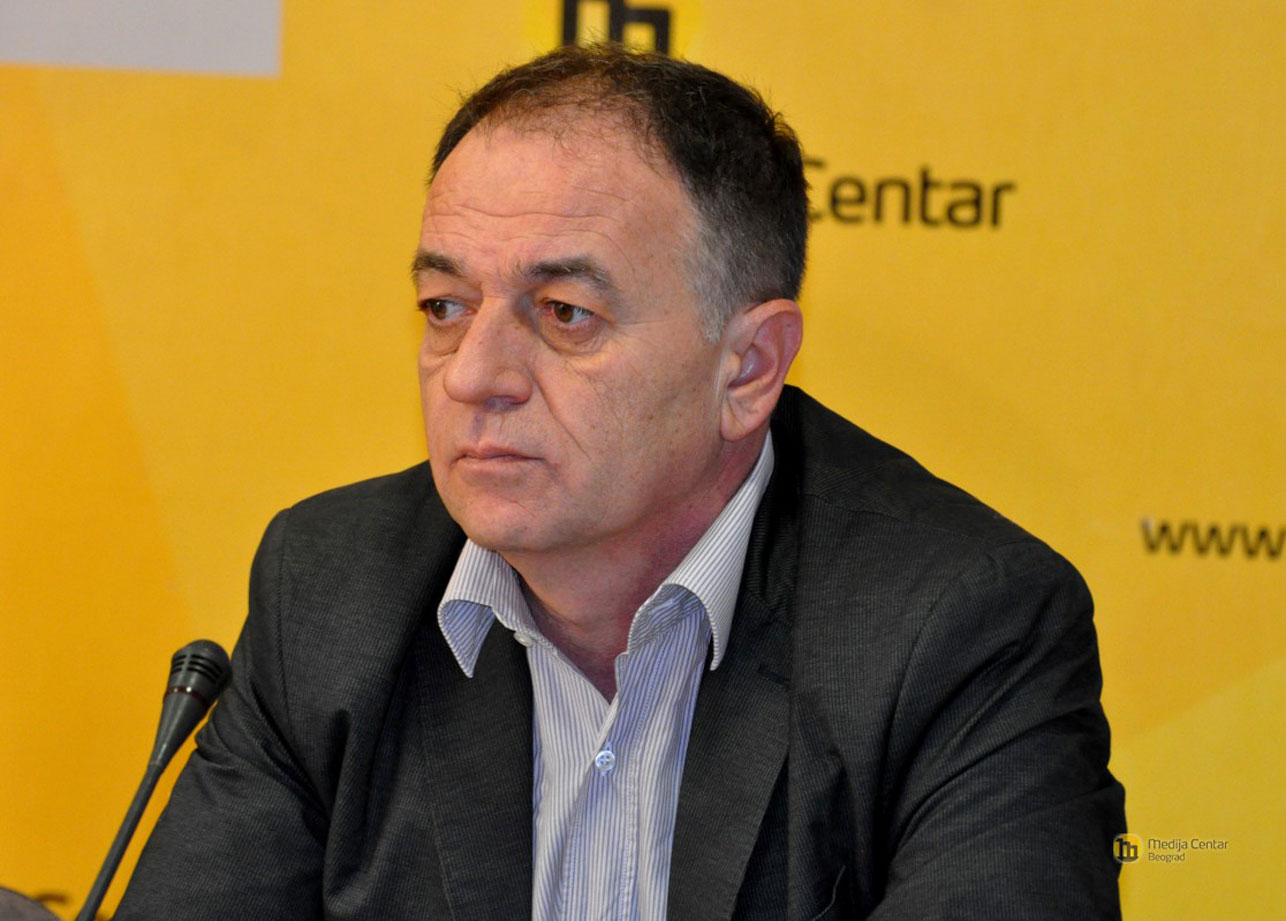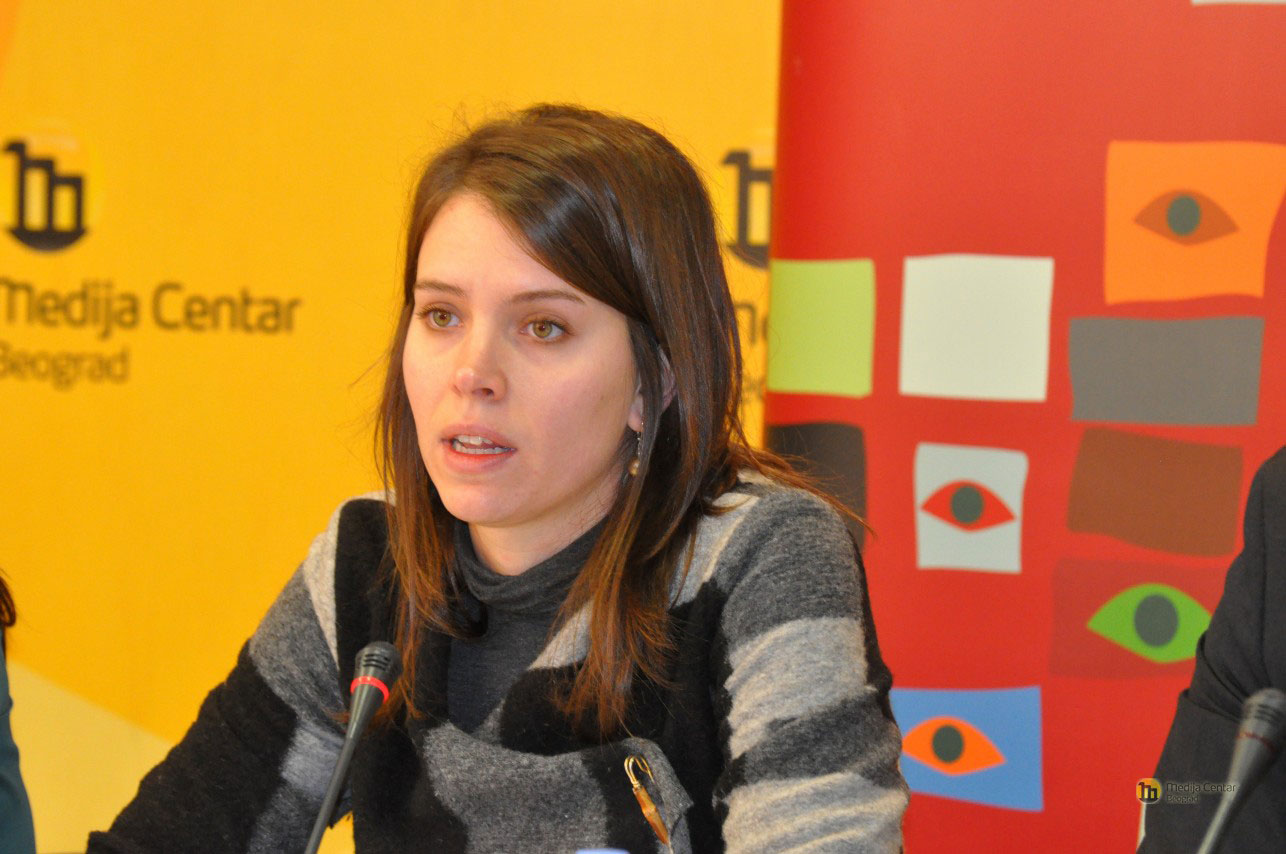Torture in Camps in Serbia Still Unpunished
 On December 22nd, 2016, the Humanitarian Law Center (HLC) presented its sixth dossier in a row on possible perpetrators of war crimes committed during the armed conflicts in the former Yugoslavia. The “Šljivovica and Mitrovo Polje” Dossier presents evidence on the treatment of Bosniaks, who sought shelter in Serbia following the fall of Žepa in late July 1995, and on the responsibility of members of the Yugoslav Army (VJ) and the Serbian Ministry of the Interior (MUP) for the crimes committed against the arrested and detained Bosniaks during their stay in Serbia. The Dossier is founded on statements given by surviving detainees, authentic documents of the Republic of Srpska Army, and military and police documents, which were admitted as evidence in a number of cases conducted before the International Criminal Tribunal for the Former Yugoslavia (ICTY), as well as on statements given by representatives of Serbian army and police and members of the international community, before the ICTY, the International Court of Justice and the First Basic Court in Belgrade.
On December 22nd, 2016, the Humanitarian Law Center (HLC) presented its sixth dossier in a row on possible perpetrators of war crimes committed during the armed conflicts in the former Yugoslavia. The “Šljivovica and Mitrovo Polje” Dossier presents evidence on the treatment of Bosniaks, who sought shelter in Serbia following the fall of Žepa in late July 1995, and on the responsibility of members of the Yugoslav Army (VJ) and the Serbian Ministry of the Interior (MUP) for the crimes committed against the arrested and detained Bosniaks during their stay in Serbia. The Dossier is founded on statements given by surviving detainees, authentic documents of the Republic of Srpska Army, and military and police documents, which were admitted as evidence in a number of cases conducted before the International Criminal Tribunal for the Former Yugoslavia (ICTY), as well as on statements given by representatives of Serbian army and police and members of the international community, before the ICTY, the International Court of Justice and the First Basic Court in Belgrade.
In her opening remarks, the HLC Legal Director, Ms. Milica Kostić, underlined that approximately 800 men from Žepa crossed the border to the territory of Serbia during July and August 1995. After they entered Serbia, they were arrested by the VJ and members of the Special Police Units and were then taken first to the Šljivovica Camp near Čajetina and then to the Mitrovo Polje Camp near Aleksandrovac. The detainees were placed in overcrowded rooms without beds, toilets or bathrooms; the nutrition was poor and insufficient, and psychological and physical torture were regular occurrences.
According to the information obtained by the HLC, high-ranking political, military and police officials in the Republic of Serbia knew about the arrival of the refugees from Žepa and the torture in the camps. However, not a single person has been held accountable for these acts to date, even though the relevant evidence has been presented before the International Court of Justice, the ICTY and the Office of the War Crimes Prosecutor (OWCP) of the Republic of Serbia. Ms. Kostić emphasized that the punishment of the atrocities at Šljivovica and Mitrovo Polje and provision of reparations for victims represent a task of social concern, and she called upon the OWCP to finally initiate an investigation into these acts and prosecute the individuals responsible.
According to the findings presented in the Dossier, the units responsible for the aforementioned violations of human rights included the 16th Border Battalion of the Yugoslav Army (16th BB) and Special Police Units. There is a document proving that two companies of the 16th BB participated in the apprehension of the Bosniak refugees, and that they took them to the watchtower in the village of Jagoštica, where they tortured them, assisted by members of the police. As the HLC Legal Analyst, Ms. Ivana Žanić, underlined, they even killed one of the refugees, Mujo Hodžić. The function of Commander of the 16th BB at that time was executed by Ljubiša Diković, who is now the acting Chief of the General Staff of the Serbian Army. Ms. Žanić stated that it was established during the research that Special Police Units also participated in the apprehension of the Bosniaks, which the former Head of the Special Police Units HQ, Obrad Stevanović, also confirmed in his testimony given before the ICTY.
It was members of the MUP who were in charge of securing the camps. More particularly, members of the Užice Secretariat of the Interior (SUP) were in charge of security at the Šljivovica Camp, whereas the Kruševac Secretariat of the Interior was in charge of the Mitrovo Polje Camp. A number of documents and former detainees testify to the then heads of the border affairs, passports and weapons departments in SUP Užice, Mr. Radislav Ojdanić, and in SUP Kruševac, Mr. Vladimir Milićević, as being the individuals who were the most responsible for torture and other misdeeds. Both of them today are in retirement.
The former head of security at the Šljivovica Camp, Mr. Zoran Prljević, is the Deputy Chief of Police in Užice today. The current occupation of the Head of the Mitrovo Polje Camp, Radoslav Savić, is not known, because the MUP have refused to deliver this piece of information to the HLC.
In the search for evidence, the HLC hit a wall of silence in the relevant institutions. Most of the state bodies refused to deliver the information requested on the basis of the Law on Free Access to Information of Public Importance. Particularly interesting is the fact that the Office of the Chief of the General Staff of the Serbian Army, Mr. Ljubiša Diković, who was the Commander of the 16th BB at the time of the relevant events, responded to the requests addressed not to it but to the Ministry of Defence.
Senad Jusufbegović was 17 years old when he spent eight months detained in the Mitorvo Polje Camp. He testified about how Bosniaks from Žepa were exposed to torture on a daily basis, from the moment they were imprisoned until the moment they were released from detention.
“I was imprisoned on July 31st, 1995 on Mount Zvijezda, by border units of the VJ. Later on, the army and police took us to the village of Jagoštica, which was nearby. […] We were registered in Jagoštica, and searched by members of the army and police, who took away our personal belongings. Some people had their personal belongings and money taken away and others not, which probably depended on the person who searched […] In the evening we were loaded onto some trucks, very small military trucks, and taken off […] We were transferred to Šljivovica [… ] I spent some three days there. From day one, we had to suffer provocations, beatings, mistreatment. People were being taken out during the nights and beaten up; we were able to hear the screams and crying of people who were being beaten up. […] A group of us was singled out on August 3rd, 1995, and taken out and put into buses. We took off for an unknown direction. Late in the night, around 2 or 3 o’clock, we reached our destination, which we later on learned was called Mitrovo Polje. […] I was placed in the room no. 2, together with some 20 other people. During our entire stay in this camp […] we were treated like any other detainees in any other camp in BiH: from bad food, to poor hygiene, from regular questioning, roll calls, beatings for no particular reason […] We had to keep the lights on the entire night. We were not allowed to look outside the window. We were deprived of any sort of communication […] If anyone looked out of the window, he would be taken outside or into the corridor and beaten up.
There wasn’t a time when we were not called for questioning […] We all experienced interrogation at least once or twice. During the interrogations, we suffered torture […] The people who were tortured the most were the people who were placed in the so-called solitary rooms. This was room no. 7 in Mitrovo Polje, where persons about whom the guards had information that they had committed war crimes against Serbs in BiH were located. They were really so brutally tortured and beaten up that they could not get up on their feet and leave the room […] They were blue, or even black, from the beatings they received several times every day. […]
The food was horrible. […] Two, three or four of us had to share a fish can or a can of meat spread, two pieces of bread crust…we would receive a small slice of bread once or not at all. We were not able to maintain personal hygiene […]
My father was also with me. There were two facilities. I was in “Rasina” and he was in “Sutjeska”. That is how they were called. We did not see each other for five months straight, even though we were located only 20 metres from one another”. […]
For the President of the Association of Victims and Witnesses of Genocide, Mr. Murat Tahirović, the “Šljivovica and Mitrovo Polje” Dossier represents a document of historical significance, which will enable future generations to find out what was happening during the war in BiH. He underlined that the associations of victims and non-governmental organizations in BiH and Serbia have put a lot of effort into locating witnesses and evidence, helping institutions provide justice for the victims and informing the public about the crimes committed. However, twenty years after the war, the pressure of the perpetrators of war crimes on the Government and the dependence of the Judiciary make it even harder to establish justice. Mr. Tahirović is afraid that the task of revealing to the public and successfully prosecuting the numerous crimes committed is far from over.







